|
Conference Session 2: Just Surviving or Thriving? Coping Among Diverse Older Adults
Friday, October 15, 2021, 9:30 AM - 12:00 PM PDT
Category: Conferences
Just Surviving or Thriving? Coping Among Diverse Older AdultsSession Facilitator: Siobhan Maty, PhD Vulnerability and Resilience: A Qualitative Study of Diverse Voices from the COVID-19 Coping StudyPresenters:
Summary: This presentation will explore complex realities, nuanced lived experiences, and how diverse older adults are making sense of and dealing with the ongoing COVID-19 pandemic. Interviews conducted from May to July (2021) investigated stresses and challenges to the physical, mental, social, and economic health and well-being of aging Americans. Our qualitative results also highlight profound resiliency and strength to cope with adversities of the pandemic, and identify strategies to support marginalized and underserved older adults during times of stress and trauma. Learning Objectives:
The Effects of COVID-19 on Communities of ColorPresenters:
Summary: The COVID pandemic has negatively impacted Latinx older adults, not only because the stress and fear associated with the vulnerability and risks of COVID-19 for this population, but also because many older adults lost their connection with their community during the pandemic. These challenges contributed to increased social isolation, anxiety, and mental health concerns experienced by this community. In an effort to support Latinx elders, Centro Cultural, a Latinx non-profit in Washington County in Oregon, created a program called "Edad de Oro" (Golden Age), with the goals of supporting elders’ wellness, social and cultural connection and healthy relationships. Before the pandemic, this program was a place for elders to build community by connecting with others and to engage in culturally congruent self-care practices. However, during the pandemic, Centro had to adapt the services, and Edad de Oro participants lost access to daily peer connections. Centro saw the social and emotional challenges of their seniors and reached out to Sabiduría, a graduate psychology program that has a specific focus on training students and working with Latinx individuals from a culturally and linguistically informed approach. Together, they developed a project named "Conversaciones con los Abuelos" (Conversations with Grandparents), which mission was to provide weekly informal social and emotional support while helping elders navigate barriers to getting specific needs met via phone. Since the beginning of the pandemic, 24 students made over 200 calls to provide emotional and social support to elders. Additionally, students provided information about mental health resources and emotional self-care kits to the elders. The elders and the students found this program transformational and supportive. This presentation will discuss the collaborations between Centro Cultural and partners to create programs to support the emotional health and well-being of the elders they serve. Learning Objectives:
Continuing Education Credit: Each session has been approved for 2 CE credits (NASW Oregon Chapter) and 2 AFH training credits - that's a total of 8 CE credits if you attend the entire series. There will be a $5 fee per session for NASW credits. Regular Certificates of Attendance can also be issued. This is the second of four sessions of OGA's 2021 virtual conference. You can register for individual sessions or, at a discount, for the entire conference series. For an overview of all sessions, please visit the conference page.
Supporting Sponsors for this session:
Session Sponsors for this session: The entire conference series is sponsored by:
Contact: [email protected] |





 Prev Month
Prev Month View Month
View Month Search
Search Go to Month
Go to Month Next Month
Next Month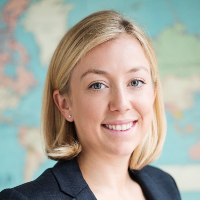 Jessica Finlay, PhD, is a postdoctoral research fellow in the Social Environment and Health Program at the University of Michigan’s Institute for Social Research. She is a health geographer and environmental gerontologist with an MA and PhD in Geography and Gerontology from the University of Minnesota. Dr. Finlay uses qualitative, geospatial, and mixed-methods to investigate the role of built, social, natural, and microbial environments for health and well-being in later life. Her research focuses on how neighborhood environments may increase risk for dementia or help buffer against cognitive decline. Dr. Finlay also investigates psychosocial and behavioral impacts of the COVID-19 pandemic on the physical, mental, social, and cognitive health of aging adults.
Jessica Finlay, PhD, is a postdoctoral research fellow in the Social Environment and Health Program at the University of Michigan’s Institute for Social Research. She is a health geographer and environmental gerontologist with an MA and PhD in Geography and Gerontology from the University of Minnesota. Dr. Finlay uses qualitative, geospatial, and mixed-methods to investigate the role of built, social, natural, and microbial environments for health and well-being in later life. Her research focuses on how neighborhood environments may increase risk for dementia or help buffer against cognitive decline. Dr. Finlay also investigates psychosocial and behavioral impacts of the COVID-19 pandemic on the physical, mental, social, and cognitive health of aging adults.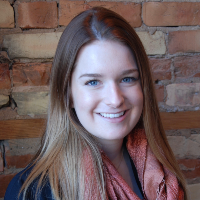 Marisa Eastman, MPH, is a Research Associate in the Center for Social Epidemiology and Population Health at the University of Michigan School of Public Health. She completed her training in Global Health Epidemiology at the University of Michigan and is broadly interested in the impacts of behavior and culture on health and wellbeing. She has contributed to projects in the United States and Ghana, spanning several topical areas. Marisa's professional goals seek to integrate outcome-driven research with qualitative insights to more holistically approach complex health-related questions.
Marisa Eastman, MPH, is a Research Associate in the Center for Social Epidemiology and Population Health at the University of Michigan School of Public Health. She completed her training in Global Health Epidemiology at the University of Michigan and is broadly interested in the impacts of behavior and culture on health and wellbeing. She has contributed to projects in the United States and Ghana, spanning several topical areas. Marisa's professional goals seek to integrate outcome-driven research with qualitative insights to more holistically approach complex health-related questions.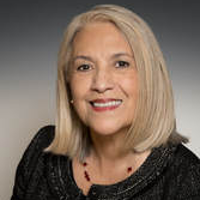 Maria Caballero Rubio is the Executive Director of Centro Cultural, a nonprofit based in Cornelius, Oregon, that provides education, economic development, cultural exchange and community-building for Latinx and immigrant communities in Washington County. She has more than 25 years of experience in management, public policy, and community engagement, including stints as executive director of the Community Policing Institute at Western Oregon University, program analyst at the U.S. Department of Justice, Public Safety Policy Director for Portland Mayor Tom Potter, and Vice President of Community Engagement at United Way of the Columbia-Willamette.
Maria Caballero Rubio is the Executive Director of Centro Cultural, a nonprofit based in Cornelius, Oregon, that provides education, economic development, cultural exchange and community-building for Latinx and immigrant communities in Washington County. She has more than 25 years of experience in management, public policy, and community engagement, including stints as executive director of the Community Policing Institute at Western Oregon University, program analyst at the U.S. Department of Justice, Public Safety Policy Director for Portland Mayor Tom Potter, and Vice President of Community Engagement at United Way of the Columbia-Willamette.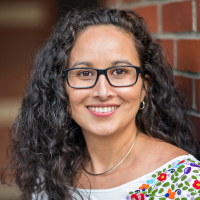 Ruth Zúñiga, PhD, is an Associate Professor in the School of Graduate Psychology & Director of Sabiduría: Latinx Psychology Emphasis at Pacific University. She developed the Sabiduría emphasis, providing specialized training to master-level and doctoral psychology students in Latinx mental health, cultural models, and community-focused research. Through Sabiduría, she has worked with students and community partners to provide and expand outreach programs for Latinx communities across Oregon and beyond. This work has increased during the COVID-19 pandemic, with online resources reaching thousands of individuals across the world through online charlas (conversations) led by students and promotores (community health workers). Dr. Zuñiga is currently focused on developing a not-for-profit organization called "Raíces de Bienestar" (Roots of Wellness) which will focus on culturally grounded mental and emotional health and wellness for the Latinx community.
Ruth Zúñiga, PhD, is an Associate Professor in the School of Graduate Psychology & Director of Sabiduría: Latinx Psychology Emphasis at Pacific University. She developed the Sabiduría emphasis, providing specialized training to master-level and doctoral psychology students in Latinx mental health, cultural models, and community-focused research. Through Sabiduría, she has worked with students and community partners to provide and expand outreach programs for Latinx communities across Oregon and beyond. This work has increased during the COVID-19 pandemic, with online resources reaching thousands of individuals across the world through online charlas (conversations) led by students and promotores (community health workers). Dr. Zuñiga is currently focused on developing a not-for-profit organization called "Raíces de Bienestar" (Roots of Wellness) which will focus on culturally grounded mental and emotional health and wellness for the Latinx community.



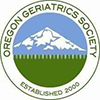







 Export Event
Export Event 